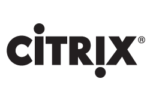Doncasters Group is a world leader in integrated precision engineering, and was originally founded in 1778. The company now operates from sites in the UK, Continental Europe, USA, China and Mexico. Their client base is genuinely global and comprises most of the industry leaders in its relevant areas of activity. The group currently employs around 5,000 members of staff worldwide. The company possesses many unique industry leading technological and manufacturing skills that are very highly regarded by their customer base. They are in virtually every respect global leaders in aerospace, industrial gas turbines, automotive turbochargers, fasteners and superalloys. All are household names within their respective industries and highly demanding as regards problem solving, time to market delivery, costs and through life support.
Computers are used across the organization, from the shop floor where their precision components are manufactured, through to back office facilities and into their design teams.

SIX SIGMA
By virtue of the components that they manufacture, Doncasters operate on a strictly six sigma basis in every part of their supply chain. From a technology perspective, this means that they cannot compromise on accuracy or reliability. Like most manufacturers, their shop floor is a harsh and demanding working environment for computers. Historically, they have used PCs to provide access to shop floor tracking applications. Multiple different users log on during and across shifts to track the progress of the components. The combination of high numbers of different users using the same PCs, combined with a dusty working environment puts real strain on the fans, chips and disks of traditional PCs.
When setting up a new line in 2009, the IT team at Doncasters Chard looked at deploying a traditional PC solution onto the shop floor to allow the shift workers to access Internet Explorer for document management applications, as well as their usual shop floor tracking programs.
A workstation was required for each bench, which would give access via a USB swipe card reader for each user’s log on.
However, the team leader for this set-up, Keith Drayton, decided to look for an alternate technology to PCs. He needed something that would provide the levels of functionality and ease-of-use that the users had become used to, along with the reliability and accuracy that is demanded by their six sigma requirements. But the new technology had to remove the issues that PCs suffer from when deployed in dusty, harsh working environments, where they quickly become unreliable because of their inherent need to run fans to cool the moving parts. He was also looking for a solution that allowed him to manage the entire shop floor deployment from a single console.
Drayton reflects, “I was obviously aware of thin client technologies from the traditional manufacturers, but steered clear of them based on experience and reputation for their lack of reliability, high operational costs and overall server demands. I then came across NComputing and decided to take a detailed look at their VSpace software and L230 client access devices. After conducting extensive testing of the technology for its ease of use, compatibility with our applications, manageability and reliability, we realized that there really is a solution that delivers on the promise of desktop virtualization.”
As a result of this exhaustive testing and evaluation, Doncasters decided to purchase the NComputing L230 solution from KL Ltd, one of NComputing’s leading partners in the UK, to provide all the bench IT for their new line in Somerset, England. The solution was deployed in April 2009 and has not once suffered any technology failures.

L230 Deployment Architecture: Doncaster Group used NComputing’s L230 access devices and deployed NComputing’s vSpace software infrastructure on host servers to provide virtual desktops in a ruggedized, manufacturing environment.
“We did have to replace one unit as it got accidentally damaged. Even this showed the benefits of the L230,” remarks Drayton. “All we had to do was plug a new unit in, and the environment was up and running immediately—no set-up, no drama, and for less than £150!”
With over a year of rigorous use in a demanding environment, Doncasters Group is now looking to the latest version of the L-series, the L300, to provide them with multimedia capability so that their teams can review online work instructions including detailed graphics and videos—the sweet-spot for the L300.
NO MOVING PARTS
NComputing desktop virtualization enables a single PC or server (located centrally) to be shared by multiple remote users at the same time. The solid-state NComputing devices are small, rugged, and can handle the environmental challenges posed by harsh production environments. Since the devices have no fans, dust is no longer a problem and the need to replace filters is eliminated. Finally, with a mean time between failure (MTBF) of over 100,000 hours (7 times longer than a PC), Doncasters can enjoy unmatched reliability. Doncasters also centrally manages their virtual desktops via their server, minimizing IT staff trips into the shop floor.




 Get the most out of your installations with Annual Maintenance Programs. AMP's give you world-class support, software updates and feature enhancements for your virtualization platform.
Get the most out of your installations with Annual Maintenance Programs. AMP's give you world-class support, software updates and feature enhancements for your virtualization platform.